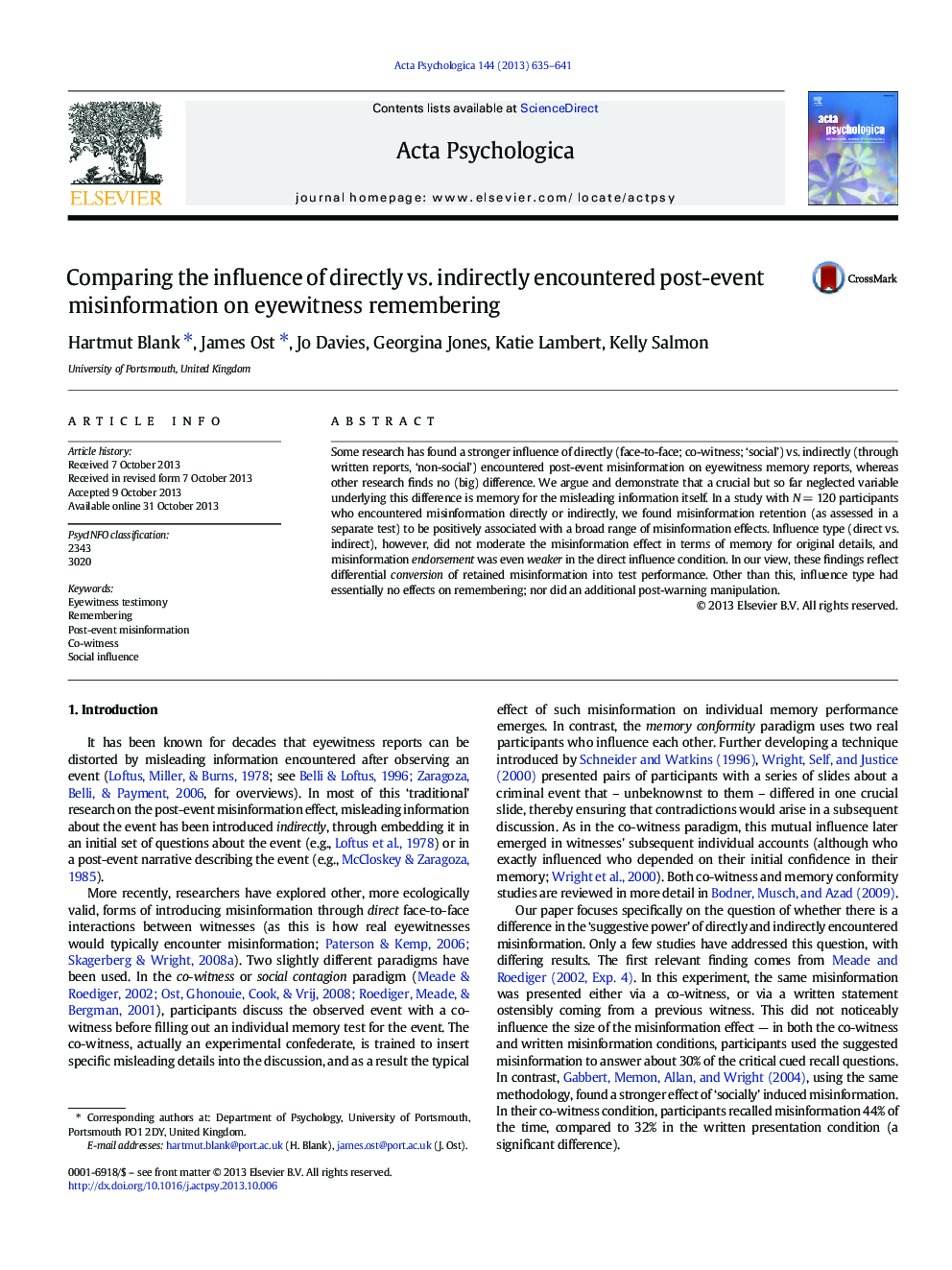| Article ID | Journal | Published Year | Pages | File Type |
|---|---|---|---|---|
| 10453815 | Acta Psychologica | 2013 | 7 Pages |
Abstract
Some research has found a stronger influence of directly (face-to-face; co-witness; 'social') vs. indirectly (through written reports, 'non-social') encountered post-event misinformation on eyewitness memory reports, whereas other research finds no (big) difference. We argue and demonstrate that a crucial but so far neglected variable underlying this difference is memory for the misleading information itself. In a study with NÂ =Â 120 participants who encountered misinformation directly or indirectly, we found misinformation retention (as assessed in a separate test) to be positively associated with a broad range of misinformation effects. Influence type (direct vs. indirect), however, did not moderate the misinformation effect in terms of memory for original details, and misinformation endorsement was even weaker in the direct influence condition. In our view, these findings reflect differential conversion of retained misinformation into test performance. Other than this, influence type had essentially no effects on remembering; nor did an additional post-warning manipulation.
Related Topics
Life Sciences
Neuroscience
Cognitive Neuroscience
Authors
Hartmut Blank, James Ost, Jo Davies, Georgina Jones, Katie Lambert, Kelly Salmon,
